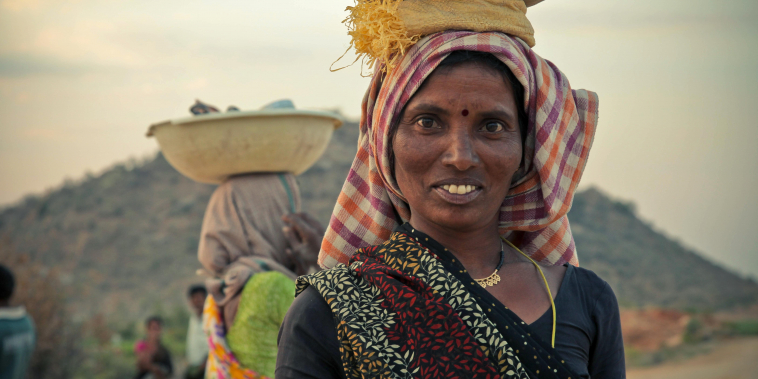Dedicated to women's health and rights
The principles outlined in the Universal Declaration of Human Rights are aligned with FIGO's vision of a world where all women achieve the highest standards of healthcare.

"Everyone has the right to a standard of living adequate for the health and well-being of himself and of his family, including food, clothing, housing and medical care and necessary social services." Article 25, Universal Declaration of Human Rights.
70 years ago the Universal Declaration of Human Rights was signed at the United Nations General Assembly in Paris. This important document - now the world’s most translated, into over 500 languages - establishes the minimum standards that everyone should be able to expect in life.
These principles are closely aligned with FIGO’s vision of a world where all women achieve the highest possible standards of physical, mental, reproductive and sexual health and wellbeing throughout their lives. While these standards are relevant for everyone, women require specialist care at specific times in their lives, for example during pregnancy, childbirth and the menopause.
The Quality of Care Network, of which FIGO is a founding member, has identified the key components necessary for delivering the quality of care all women have a right to:
- Safe - ensuring preventable injuries and medical errors are avoided
- Effective - following scientific knowledge and evidence-based guidelines
- Timely - providing healthcare as soon as it’s required
- Efficient - reducing wastage in a way that maximises resources
- Equitable - consistent care irrespective of gender, race, ethnicity, geographical location or socioeconomic status
Such levels of care are especially crucial for pregnant women and newborns, and the Quality of Care Network explains the need for "competent and motivated health professionals", along with the necessary equipment and medical supplies, and clean water; but this is not a reality for everyone.
For many women around the world, affordable adequate healthcare is out of reach. Sadly, in low resource settings, members of the population are often unable to access, or are excluded from the factors that contribute towards good health.
Meeting the requirements set out by the Quality of Care Network is a constant challenge for all nations. Every woman has the right to receive care with respect and dignity, and she should have access to the social and emotional support of her choice.
Significant human rights challenges remain
Healthcare is an area that must be at the forefront of global priority. The UN has identified that:
- 65 million men, women and children were forced from their homes by war and persecution in 2015. This remains a global emergency, and is a major area of focus for FIGO’s Women’s Health and Human Rights Committee.
- 700 million women today were married before age 18; 250 million were married before age 15. Every one of these girls is therefore unlikely to complete her education, making her more dependant and often more vulnerable to sexual violence and abuse; having an impact upon her health and wellbeing for the rest of her life.
- Women and gender issues such as sexual assault, rape, exploitation and violence against women remain endemic. These are serious human rights violations and continue to be a major public health problem on a global scale. As obstetrician–gynaecologists, FIGO members have a unique opportunity to assess and provide support for women.
70 years on, Article 25 remains highly pertinent
Today we reaffirm the importance of these enduring human rights principles and standards worldwide.
FIGO, and our 132 member societies, remain dedicated to the improvement of women’s health and rights and to the reduction of disparities in healthcare available to women and newborns globally.